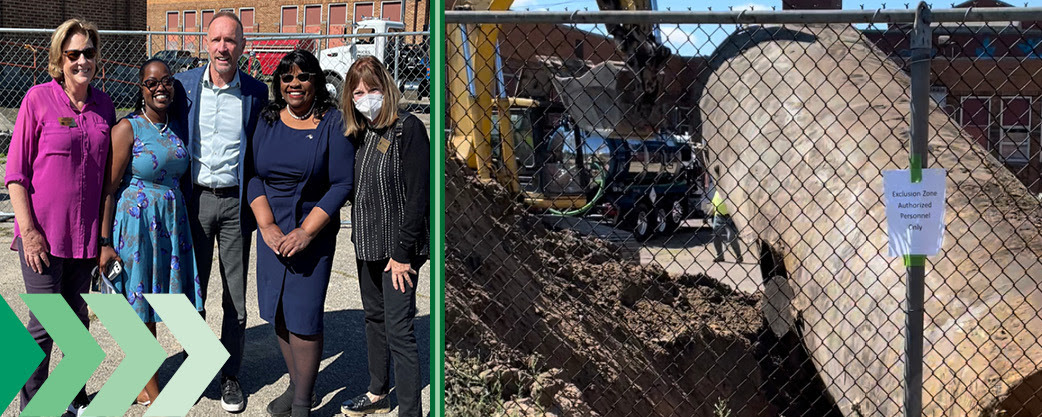
Girls Basketball Districts are Out-2023
Girls Basketball Districts are Out-2023.
Written Wednesday June 22nd at 10:40 AM

Hello everyone, these are the Girls Basketball districts.
If Basketball coaches want their thoughts on their districts posted on the blog please DM me on Twitter and I’ll get them on there.
This article will be updated very often.
District 4 @ Lapeer
OXFORD
Grand Blanc
Lapeer
Davison
Holly
PROJECTED MPR: 1. Grand Blanc, 2. Oxford
FAVORITE: Grand Blanc
NEXT: Oxford
DARKHORSE: Davison
PLAYER ON THE SPOT: Jada McCree-Grand Blanc
EARLY THOUGHTS: There were plenty of surprises and this district brought me a huge surprise. Flint Kearsley got moved to a different district. Oxford is in a northern district for a third straight year??? I don’t know what my good friend Dan Brown at Chicago Brothers Pizza has to say about this but knowing him he won’t be happy. They have proven experience. The Wildcats have Peyton Richter, Nevaeh Wood, Allison Hufstedlar, Sophia Rabb, Brady Elling, Isabella Rushlow, Paige Rushlow, Avery Feeny, Lexi Yankee, Emma Morris, and Miranda Wyniemko coming back for Coach Rachel Bryer. Lapeer had a really rough year last season but they have a new coach. The Lightning have Mallory Butterfield, Rosemary Kollar, Mya McKenna, MaKynna Saltzman, Laura Brown, Alexis Norman, Alida Wing, and Abigail Francis coming back for new Coach Evan Bell. Davison should be very interesting this season. The Cardinals have Gracie Little, Lillian Kish, Gabi Stevens, Marionna Dixon, Skyler Miller, Katie O’ Connor, and Lily Morey coming back for Coach Lauhnna McMahan. Grand Blanc should be the favorite in this district despite losing some key players to graduation last season. The Bobcats have Chelsea Bishop, Jada McCree, Rayven McQueen, Ali Anderson, Kendyle Hall, and Malaya Brown coming back for Coach Mike McCay. Holly is new to this district after being in a district that had Fenton, Linden, Howell, and Hartland. They could have it rough going north in this district. The Bronchos have Alana Simmons, Annabelle Basham, Audrey Combs, McKenna McGhee, Morgan Fluckey, Annalease Thiese, and Mollina Adams coming back for Coach Ben Varner. When looking at this district, the Bobcats are favored for the third straight district but I have a funny feeling that Oxford is not that far off despite the two blowout losses in the last two years, the third time is always the charm and it could be for the Wildcats.
District 5 @ Rochester
ROCHESTER
STONEY CREEK
ADAMS
Romeo
Utica Eisenhower
PROJECTED MPR: 1. Rochester, 2. Stoney Creek
FAVORITE: Rochester
NEXT: Stoney Creek
DARKHORSE: Utica Eisenhower
PLAYER ON THE SPOT: Ava Williams-Rochester
EARLY THOUGHTS: This is a district that has the same teams from last season but Lake Orion was moved to a different district. Rochester is the early favorite in the district however they have not gotten past the district finals in each of the last four years. They have home court however one of those four losses was to Utica in 2021 in the district finals when having home court. The Falcons have Alice Max, Kiley Robinson, Natalie Rayce, Ava Williams, Alania Webb, Stevie Norgrove, Abby Pleasant, Melina Troy, Trinia Mollicone, and Lindsey Gleason coming back for Coach Bill Thurston. Rochester’s toughest challenger should be Stoney Creek. They should be motivated after having a disappointing postseason falling to Lake Orion in the district semifinals last season. The Cougars have Sarah LaPrarie, Emily Flynn, Mia Carson, Liberty Allen, Merrick Schwalbach, and Lily Solek coming back for Coach Kellen James. Adams should be very interesting despite struggling with the transition last season. The Highlanders have Samantha Blaine, Olivia Marcial, Taylor Green, AuJayna Howard, Jin Ah Jasper, Morgan McPherson, Nicole Kedzierski, and Skyler Slezak coming back for Coach Joe Malburg. Utica Eisenhower is a sleeper in this district. The Eagles have Deyvn Raymond, Autumn Reed, Maggie McGuire, Layna Sturza, Jennifer McWerthy, Ava Stack, Marianna Stojcevski, Abby Klaft, Abby Nezich, and Lexi Horattas coming back for Coach Cliff Piper. Romeo had a really rough year last season but there is some optimism. They will have a new coach with Katy Bosheers stepping down which was very surprising. The Bulldogs have Eva Hill, Ava McMillan, Clare Carmody, Elise Rilley, Amanda Kitchen, Jacqueline LeBlanc, Gabriella Matina, and Rachel Miller coming back but they do not have a new coach yet as mentioned. This district looks to be very interesting. Three teams standout but anything is possible.
District 6 @ Clarkston
CLARKSTON
LAKE ORION
PONTIAC
Waterford Kettering
Waterford Mott
PROJECTED MPR: 1. Lake Orion, 2. Clarkston
FAVORITE: Lake Orion
NEXT: Clarkston
DARKHORSE: Waterford Kettering
PLAYER ON THE SPOT: Ava Hernandez-Clarkston
EARLY THOUGHTS: There are two teams that really stand out and both of them won district titles last season. Clarkston won their third straight district title but missed a really great look at the end of the game and fell to Hartland in the regional finals. They have some talent coming back despite losing their two top players from graduation and 18 games last season. The Wolves have Ava Hernandez, Mia Zorski, Emily Valencia, Kierra Tolmie, Ellery Hernandez, Marley Mazur, Ella Morgner, Anna Thomas, Claire Walker, Olivia Gray and Brooklyn Covert coming back for Coach Aaron Goodnough. Clarkston also has home court for the district. Lake Orion enters this district after winning a different district. They won 18 games and was in it for three and a half quarters in their regional semifinal against Clarkston last season. The Dragons have Chloe Wiegers, Maddie Ebbert, Kylie Heck, Taylor Dinda, Audrey Wischmeyer, Ryann Pawalcyzk, Grace Sullivan, Ali May, Fontana Blackney, Bella Gonzales coming back for Coach Bob Brydges. Pontiac should be much improved this season for former Oakland University men’s basketball standout and Coach Rawle Marshall. Waterford Kettering lost some experience from last season. The Captains have Amelia Vamvakitis, Malyanna Schoof, Ellie Drops, Payton Amshay, Natalia Perez, Bella Labo, Gracela Lovelett, Abby Hayword, and Nora Hernandez coming back for Coach George Yarberry. Waterford Mott was very young last season. They should be much improved. The Corsairs have Makayla Henderson, Jillian Massey, Gillian Johnson, Karli Koskien, Rachel Rockford, Juliana Lemis, Izzy Esquivel, Emily Nasianceno, Madison Winters, Kelsey Palmer, and Emma Paschke coming back for Coach Michelle Sklar. There are a lot of PR1DE ladies in this district. This should be very interesting to watch.
District 7 @ Lakeland
WEST BLOOMFIELD
Lakeland
Walled Lake Northern
Walled Lake Central
Walled Lake Western
PROJECTED MPR: 1. West Bloomfield, 2. Walled Lake Northern
FAVORITE: West Bloomfield
NEXT: Walled Lake Northern
DARKHORSE: Walled Lake Central
PLAYER ON THE SPOT: Destiny Washington-West Bloomfield
EARLY THOUGHTS: This is where the defending Division One State Champs will begin their State title defense in this district. Lakeland also won a district crown last season as well but they were put in different regionals but they are in the same district. West Bloomfield is loaded with proven experience. The Lakers have Summer Davis, Indya Davis, Kendall Hendrix, Sydney Hendrix, Destiny Washington, Ava Lord, Gabby Williams, Jaylee Head, Jada Vaughn, and Gabrielle Hale coming back for Coach Darrin McAllister. Lakeland should be very young after getting to the regional semifinals where they fell to a very good Hartland program last season. The Eagles have Kira Brower, Molly Marino, Lizette Tanguaka, Mia McDonald, Parker Ostach, Emma Benton, and Raegan Lukes coming back for Coach Mike Leithelm. Walled Lake Western was very young last season after being very good a few years ago under former Oxford coach Steve Emmert. The Warriors have Emma Hoffmeyer, Emma Cassatta, Bella Yaldoo, Kelsey Beck, Makenna Krzisnik, Evana Gjelaj, Ryan Geisler, and Ryah Dewey coming back for Coach Kelly Costello. Walled Lake Northern could be West Bloomfield’s toughest challenger in the district. The Knights have Amal Younes, Addison Porter, Ava Horen, Mia Lanni, Reese Nemeth, Natalie Wilbert, Macie Hunter, Cate Ross, and Aleena McCullough coming back for Coach John Sharpe. Walled Lake Central was very young last season. They are a sleeper in the district. The Vikings have Jaden Henderson, Amelia Maktari, Carys Lucas, Kyeli Anderson, Savannah Breitwesier, Angelina Virga, Lillian Miracle, Maddie Schopf, Jordyn Harris, and Grace Mathson coming back for Coach Robert Schopf. This looks to be West Bloomfield’s district to lose but it’s much tougher than people think because all three Walled Lake schools have a lot of experience coming back.
District 25 @ Berkley
BERKLEY
OAK PARK
ROYAL OAK
Detroit Renaissance
Detroit Mumford
PROJECTED MPR: 1. Detroit Renaissance, 2. Berkley
FAVORITE: Detroit Renaissance
NEXT: Berkley
DARKHORSE: Royal Oak
PLAYER ON THE SPOT: Nevaeh Otis-Detroit Renaissance
EARLY THOUGHTS: There are a ton of storylines heading into this district. Detroit Renaissance was heavily favored in this district and had home court. There was mentions that they could make another trip to the Division One State finals however they were upset by Berkley in the district finals on their home floor last season. The Bears middle of the pack in the White but that game against the Phoenix gave them confidence heading into this season. They have home court for the district. Berkley lost a few standouts from last season but they have Jillian Gomes, Mya Jones, Ava Beard, Dakaya Cunningham, Addison Hambright, Maddi Bonsall, Avery Wintergarden, Maleve Nolan, and Sammi Withrow coming back for Coach Cody Feltner. Royal Oak should be much improved after having a really rough year last season. They are known for their defense first mentality. The Ravens have Elly Finch, Anna Waterstredt, Lucy Freytag, Emily Walden, Izzy Fairless, Alana Morello, Emiliee Austin, Maddie Lawrence, and Hannah Sanders coming back for Coach Brian Sopota. Detroit Mumford has had a ton of success as of late. The Mustangs should be in the mix for Coach Kareem Hogan. Detroit Renaissance hasn’t forgotten what happened last season in the district finals. The Phoenix have Imani Johnson, Christian Sanders, Nevaeh Otis, Makayla Coleman, Aubrey Johnson, Sterling Gooden, Makayla Johnson, Azaria Huggins, Kiyla Brooks, Haramonie Bolton, Kayln Southern, and Nyana Pharr coming back for Coach Shane Lawal. Oak Park really struggled to score last season. The Knights should be better for Coach Chantelle Corson. This district should be very interesting to watch as mentioned at Berkley.
District 26 @ North Farmington
NORTH FARMINGTON
FARMINGTON
SOUTHFIELD ARTS AND TECH
Farmington Hills Mercy
Detroit Henry Ford
Livonia Stevenson
PROJECTED MPR: 1. Farmington Hills Mercy, 2. North Farmington
FAVORITE: Farmington Hills Mercy
NEXT: North Farmington
DARKHORSE: Farmington
PLAYER ON THE SPOT: Sela Lefler-North Farmington
EARLY THOUGHTS: This should be a very interesting district on paper. It looks to be a two team district final but maybe a third team could emerge as a possible sleeper. Farmington Hills Mercy is the early favorite. They won 18 games last season and have a lot of proven experience. The Marlins have Maya White, Fran DeNardo, Carley Goebel, Alison Smiley, Lillian DeJong, Ava Lorraine, Caroline Butcher, Aizlyn Albanese, Lauren Smiley, and Emily Walker coming back for Coach Gary Morris. Farmington could be a sleeper. They lost a ton of talent from last season but they always seem to be in the mix. The Falcons have Yasmine Thorpe, Jayla Silver, Brooke Farrington, Annalin Nardelli, and Clarissa Hankins coming back for Coach Laura Guzman. Southfield Arts and Tech should be improved this season. They were a real Jekyll and Hyde last season. The Warriors have proven experience in Christian Banks, Jayla Austin, Kamira Page, and Jordan Ushery coming back for Coach Shiquita Coltrane. North Farmington enters this district and has home court. They had a really rough district which had Groves, Seaholm, Birmingham Marian, Bloomfield Hills, and West Bloomfield last season. The Raiders have Sela Lefler, Penelope Creary, Asiyah Jihad, Eliza Muller, Amarriah Merriweather, Hannah Hart, Sam Hoffer, and Halee Rogers coming back for Coach Jeff Simpson. Detroit Henry Ford won 10 games last season. The Trojans could be a sleeper in this district for Coach Chevelle O’Brien. Livonia Stevenson made the district finals falling to Farmington Hills Mercy last season. The Spartans have Gracie Shahu and Scarlett Webster coming back for Coach Kareem Smart. This is shaping to be a very interesting district as mentioned but this district stands like it’s the Marlins to lose for now.
District 27 @ Birmingham Marian
GROVES
SEAHOLM
BLOOMFIELD HILLS
TROY
Birmingham Marian
PROJECTED MPR: 1. Birmingham Marian, 2. Seaholm
FAVORITE: Birmingham Marian
NEXT: Seaholm
DARKHORSE: Groves
PLAYER ON THE SPOT: Mackenzie Swanson-Birmingham Marian
EARLY THOUGHTS: This is shaping up to be a very interesting district on the newly named “Mary Cicerone court.” Birmingham Marian looks to be the favorite on paper but there are some suitable challengers in this district. Groves should be very interesting. The Falcons have Kaitlyn Sanders, Cira Racco, Lilly Gallagher, Cameron Little, Ella Blank, Nevaeh McCay, Jean Smith, Dana Wesley, Payge Charnas, and Kirsten Jasinski coming back for Coach Alison Hidey. Troy comes to this district after overcoming their postseason problems past by making it to the State Quarterfinals last season. They were in a district that had Warren Cousino, Warren Mott, Warren Woods Tower, and Troy Athens on their home floor last season. The Colts have Lizzie Butzyzk, Charlotte Gillion, Avery Allen, Shaivani Angadi, Victoria Siegan, Raegan Zeiter, and Zoe Silver coming back for Coach Julius Porter. Seaholm had a very strong year winning the Blue but fell to arch rival Groves in the first round last season. The Maples have Shay Manchester, Taylor Hartwig, Lola Weber, Olivia Davis, Kate Anderson, Clara Guffy, Emma Weber, Mary Gumbas, and Anne Boogerian coming back for Coach Chris Manchester. Bloomfield Hills should be much improved. They fell to North Farmington in the first round in a very competitive game last season. The Blackhawks have Ashley Forner, Brianna Young, Grace Main, and Ruby Smith coming back for Coach Kristen Massey. Birmingham Marian will have a new era as former assistant Michelle Lindsay takes over for longtime coach Mary Cicerone. The Mustangs have Mackenzie Swanson, Ella Ervin, Abby Landa, Molly McLeod, and Charlie Bingham coming back for Lindsay. The district looks for now like its Birmingham Marian’s to lose but there are some challengers waiting in the wings as mentioned.
District 28 @ Avondale
AVONDALE
TROY ATHENS
Sterling Heights Stevenson
Utica
Utica Ford II
PROJECTED MPR: 1. Sterling Heights Stevenson, 2. Utica Ford II
FAVORITE: Sterling Heights Stevenson
NEXT: Utica Ford II
DARKHORSE: Utica
PLAYER ON THE SPOT: Ellie Musto-Troy Athens
EARLY THOUGHTS: This is a very interesting district with a combination of Oakland and Macomb County schools in this district. Avondale was moved east away from Clarkston, Pontiac, Waterford Kettering, and Waterford Mott. They have home court in the district. The Yellow Jackets have Lily Titus, Madison Manyweathers, Khila Bradley, Amaria Daniels, Takera Williams, and Kaliyah Carroll coming back for Coach Roy Christmon. Troy Athens is a program that not a lot of people are mentioning about. They have a great shot to win this district. The Red Hawks have Ellie Musto, Rebekah Delia, Lily Batzold, Fiona Wingblad, Kaci Mersier, Abby Malone, Alex Link, and Skyler Emerson coming back for Coach Stacie Klumpp. Sterling Heights Stevenson had a really great year under former Rochester boys basketball coach Vance Kirkwood. The Titans won 11 games last season and is the early favorite in the district. Utica has done very well recently. They are well coached. Chieftains have Cameron McConachie, Sarah Fromm, Natalie Shtogrin, and Katelyn Shtogrin coming back for legendary coach Tom McDonald. Utica Ford II had a really great year by winning 16 games last season. The Falcons have Sydney Garon, Lilah Earl, Madison Bettys, Kailee Gillich, Anayya Davis, and Rachel Riepma coming back for Coach Matt Joseph. I see four teams that standout in this district, it’s anyone’s district to take.
District 30 @ Grosse Pointe North
HARPER WOODS
Grosse Pointe North
Grosse Pointe South
St. Clair Shores Lakeview
Roseville
PROJECTED MPR: 1. Grosse Pointe North, 2. St. Clair Shores Lakeview
FAVORITE: Grosse Pointe North
NEXT: St. Clair Shores Lakeview
DARKHORSE: Roseville
PLAYER ON THE SPOT: Annabel Ayrault-Grosse Pointe North
EARLY THOUGHTS: This is a very tough district with every team winning double digit games last season. There are two teams that made the regionals that are in this district. Grosse Pointe North is the favorite in this district. They have home court and proven experience. The Norsemen have Jenna Winowiecki, Annabel Ayrault, Mia Stephanoff, Charlotte Juilen, Natalie Babcock, and Sophie Boroski coming back for Coach Gary Bennett. St. Clair Shores Lakeview made the regional semifinals last season. The Huskies have Zion Harris, Camara Knighton, Jillian Ostrowski, Mackenzie Stein, Isabella Tiseo, Maria Decker, Ava Prasnjak, Samantha Guciardo, Autumn Wirick, Alexis Pottu, Me’Ahna Owoiya, and Madison Geib coming back for Coach Joe Charrette. Roseville should be in the mix with a ton of proven experience this season. The Panthers have Aaniya Jordan, Saniah Love, Dionni John, Cheyenne Hrelja-Hill, Haleigh Olivas, Michelle Huffman, Reyvan Frank, Rihanna Reeves, Keyonna Scorpio, Presley Rubio, and Sydney Masterson coming back for Coach Andy Houghton. Grosse Pointe South has been a traditional power however they unusually struggled winning four games last season. The Blue Devils have Maddy Benard, Bella Deveroux, Madison Duff, Olivia Dimuzio, Ava Sjorgen, Chloe Power, and Karter Richards coming back for Coach Kevin Richards. Harper Woods comes from Division Two into this district after having a really good season last season. They have a lot of experience which helps. The Pioneers have Kendall Kelsey, Mya Duncan, Lauren Peterson, and Clearia Peterson coming back for Coach Paul Allen. This should be a very tough district as mentioned. There is a lot of proven programs in this district.
District 58 @ Hazel Park
FERNDALE
FERNDALE UNIVERSITY
Hazel Park
Warren Lincoln
Warren Fitzgerald
PROJECTED MPR: 1. Ferndale University, 2. Hazel Park
FAVORITE: Ferndale University
NEXT: Hazel Park
DARKHORSE: Ferndale
PLAYER ON THE SPOT: Jada Buchanan-Ferndale
EARLY THOUGHTS: This is not a very strong district. Ferndale University is getting better each day for Coach Destain Hester. The Eagles made the district finals falling to Birmingham Detroit Country Day last season. Ferndale had things very rough last season but they improved each day. The Eagles have Jada Buchanan, Angel Ajonouma, Briunna Young, Tarriyah Early, Jaila Pouncey, and Jayla Martin coming back for Coach Al Katolla. Hazel Park has home court in the district and could be a team to watch in this district. The Vikings won 11 games last season for Coach Dakota Ogles. Warren Lincoln has not been the same program that really dominated the late 2010’s. They struggled winning four games last season. The Abes should be much better for Coach Jalen Ford. Warren Fitzgerald really struggled winning one game last season. They should be improved this season. The Spartans have Janiya Williams and Mariah Anderson coming back for Coach JuWan Shakespear. I see this being a two team district between the Eagles and the Vikings. Could this be the time Ferndale University makes the next step???
Here is the Girls Basketball Districts from the MHSAA Website
https://www.mhsaa.com/Sports/Girls-Basketball/2023-Districts

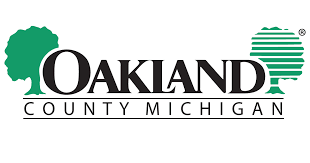
 At Oakland County, we are continually trying to improve the delivery of services and programs, including on our website. We’re undergoing a revamp of the county’s website –
At Oakland County, we are continually trying to improve the delivery of services and programs, including on our website. We’re undergoing a revamp of the county’s website – 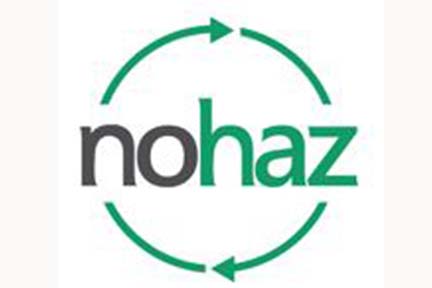
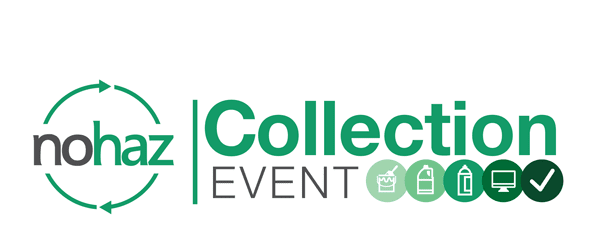


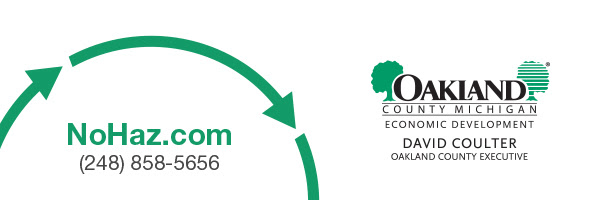





 The DNR Outdoor Skills Academy will offer opportunities to learn more about foraging for wild mushrooms, bear hunting and outdoor survival with July classes at the following locations.
The DNR Outdoor Skills Academy will offer opportunities to learn more about foraging for wild mushrooms, bear hunting and outdoor survival with July classes at the following locations.
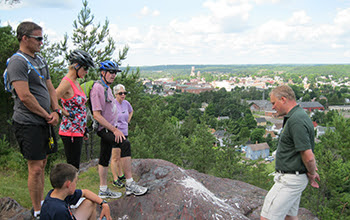 The Michigan History Center’s
The Michigan History Center’s  Whether you live in southeast Michigan or your summer travels take you there, check out what’s happening at the
Whether you live in southeast Michigan or your summer travels take you there, check out what’s happening at the  Looking for a fun outdoor fitness experience? Check out stand-up paddleboard yoga or PaddleFit – combining intervals of paddling and various types of exercises for a great nonimpact core muscle workout – at a state park. No stand-up paddleboard or yoga experience needed. July classes are scheduled at the following locations.
Looking for a fun outdoor fitness experience? Check out stand-up paddleboard yoga or PaddleFit – combining intervals of paddling and various types of exercises for a great nonimpact core muscle workout – at a state park. No stand-up paddleboard or yoga experience needed. July classes are scheduled at the following locations.



